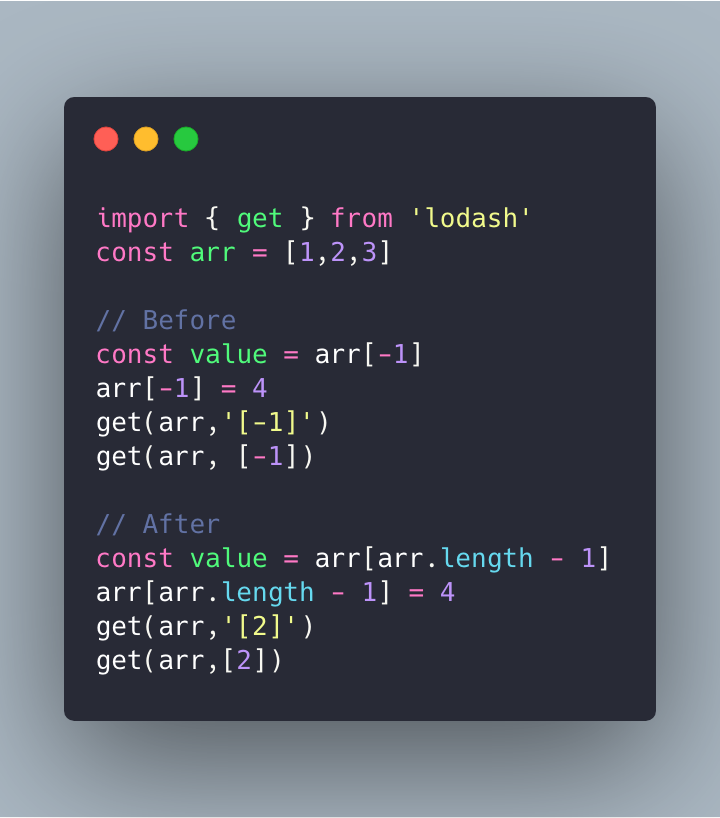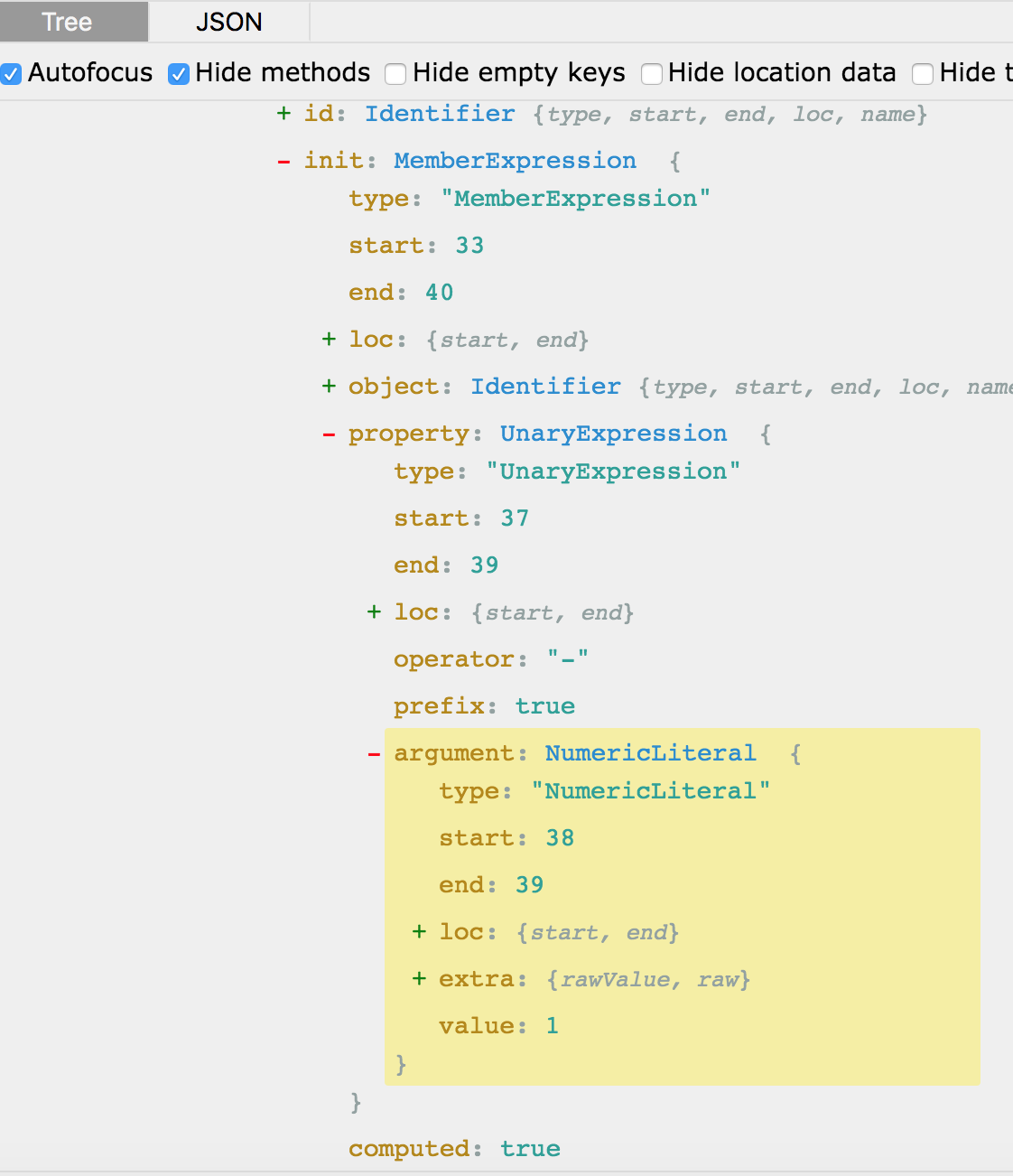1. 前言
babel 如今已成为每一个现代前端项目的标配, 有了它,我们可以肆无忌惮的使用 stage-xxxx 的语法, 增强我们的生产力
我们通过写一个 支持 arr[-1] 的 babel插件 来加深理解

2. 需要实现的功能
现在我们有如下的一个数组 arr, 我们想获取数组的最后一个下标,由于 js 不支持 [-1] 的操作,所以我们需要转换成 arr[arr.length - 1]
const arr = [1,2,3]
const value = arr[-1]
// ↓ 想要转换成
const value = arr[arr.length - 1]
换作以前的我, 反手就是粗暴的 正则解析 去替换, 当然正规一点还是老老实实用 AST(Abstract Syntax Tree)
3. 查看抽象语法树
站在巨人的肩膀上 我们可以 使用 在线的 AST 生成工具 astexplorer.net/ 可以看到我们刚才写的两行代码对应的 语法树

当然你也可以使用 @babel/core 来生成 语法树 得到的结果是一致的
import babel from '@babel/core'
const code = `
const arr = [1,2,3]
const value = arr[-1]
`
babel.transform(code,{},(result)=>{
console.log(result.ast)
})
4. 编写插件
关于 babel 插件的详细介绍, 可以参考 这篇文章 Babel 插件有啥用?
const babel = require('@babel/core')
const t = require('@babel/types')
const visitor = {
MemberExpression(path) {
const node = path.node
}
}
module.exports = (babel) => {
return {
visitor
}
}
@babel/types 主要帮助我们判断 当前节点是什么类型, 十分强大, 根据观察生成 的 AST, arr[-1] 是一个 MemberExpression 节点, 所以我们只需要 将对应的节点 替换掉即可
想要将 arr[-1] 转换成 arr[arr.length - 1], 我们需要知道2点
数组的名字 => arr数组的下标并且是一个数字 => -1
获取 数组的名字
if (node.object && t.isIdentifier(node.object)) {
const arrName = node.object.name
}
获取 数组的下标, 应该满足 是一个表达式, 并且参数是一个数字
let arrIndex
let operator
if(node.property && t.isUnaryExpression(node.property)){
if(
node.property.prefix &&
node.property.operator &&
node.property.argument &&
t.isNumericLiteral(node.property.argument)
) {
arrIndex = node.property.argument.value
operator = node.property.operator
}
}
最后拿到了我们想要的参数, 组装一下, 替换当前节点即可
const result = `${arrName}[${arrName}.length ${operator} ${arrIndex}]`
path.replaceWithSourceString(result)
5. 测试
import { transform } from '@babel/core'
import babelArrayLastValuePlugin from '../src/index'
describe('test array last value babel plugin', () => {
beforeEach(() => {
String.prototype.trimAll = function () {
return this.replace(/\s/g, "")
}
})
it('test expression', () => {
const _code = `
const arr = [1,2,3];
const v = arr[-1];
`
const { code } = transform(_code, {
plugins: [babelArrayLastValuePlugin]
})
expect(code.trimAll()).toEqual(`const arr = [1,2,3];const v = arr[arr.length - 1];`.trimAll())
})
6. 特殊的场景
在实际场景中 可能还要直接赋值的情况
arr[-1] = 4
或者使用 lodash 的 get 的情况
get(arr,"[0]")
这样对应的 AST 会有变化, 还需要处理对应的节点
7. 使用
yarn add babel-plugin-array-last-index
// .babelrc
{
"plugins": [
"array-last-index"
],
}
8. 结语
这是我第一次尝试写一个玩具插件,虽然实际作用不大, 不过还是学到不少, 也由衷的佩服那些 写 正儿八经 babel 的插件的作者, 是真的强!